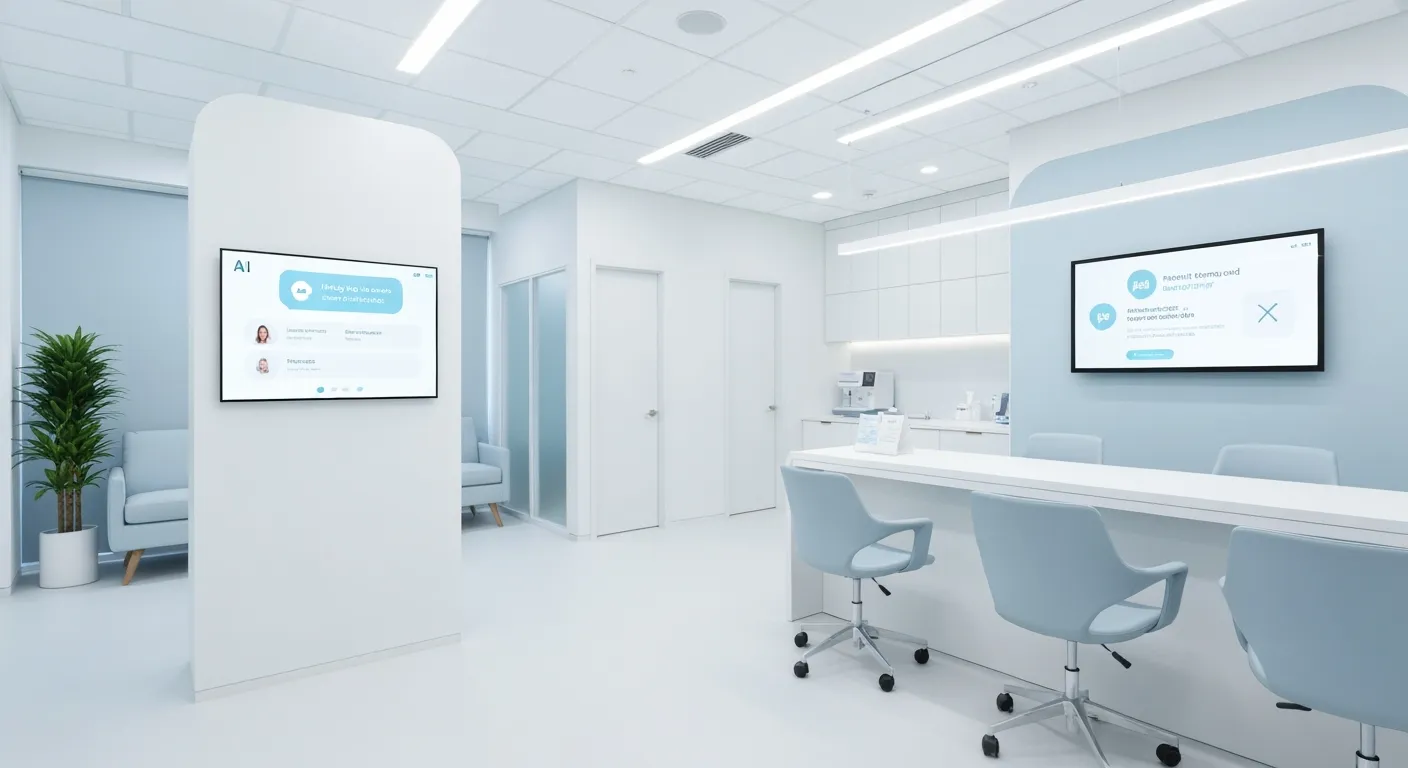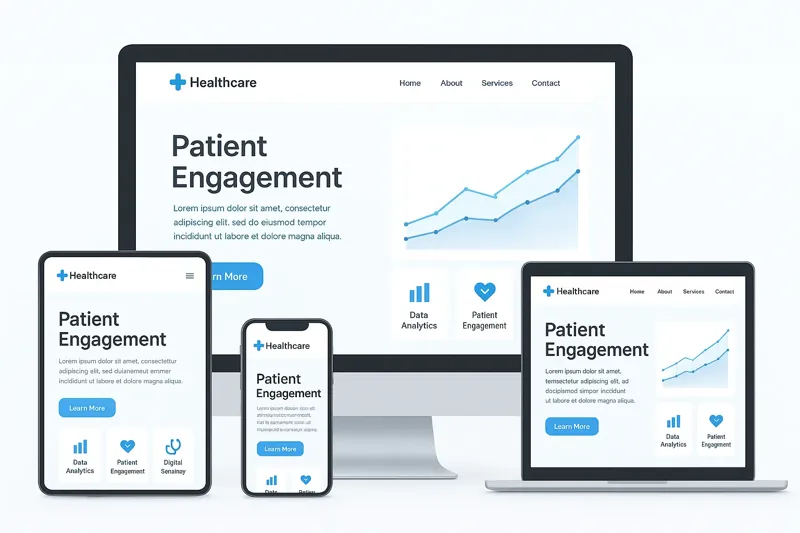Introduction to AI Live Chat in Healthcare
Artificial intelligence live chat solutions are transforming patient support by offering real-time, accessible assistance. These AI chatbots integrate sophisticated technologies like natural language processing and machine learning to simulate human conversation, significantly improving patient engagement and operational efficiency. This article explores the deployment of AI live chat in healthcare, outlining their benefits, technologies, challenges, and real-world applications that shape the future of patient care.
The Growing Impact of AI Chatbots in Healthcare
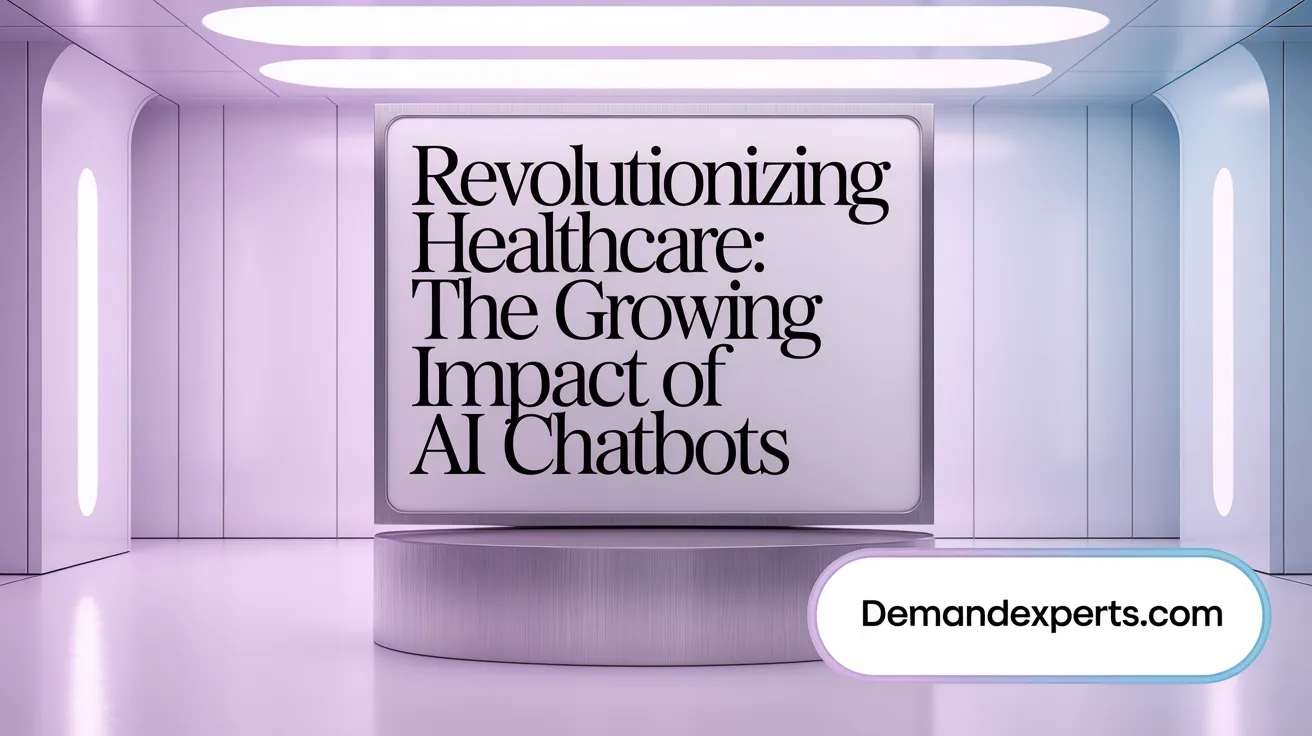
What is the current and projected market size for healthcare chatbots?
The healthcare chatbot market is rapidly expanding. It is projected to reach approximately USD 1.49 billion by 2025 and surge to USD 10.26 billion by 2034. This growth is driven by an impressive compound annual growth rate (CAGR) of 23.92%, reflecting broad adoption and technological advancements within the healthcare industry.
How do AI chatbots benefit healthcare providers and patients?
AI chatbots bring several advantages to healthcare systems and their patients. They significantly improve patient engagement by offering personalized and timely interactions. Chatbots reduce administrative burdens on healthcare staff by automating routine tasks, such as appointment management and providing answers to common queries. Their 24/7 availability ensures continuous support, improving access to healthcare services at any time. Overall, AI chatbots enhance operational efficiency, helping healthcare organizations save an estimated USD 3.6 billion globally by 2025.
What are the primary use cases for AI chatbots in healthcare?
AI chatbots serve a variety of essential functions in healthcare settings:
- Appointment Scheduling: Automating booking, rescheduling, and cancellations (Appointment scheduling chatbots)
- Patient Triage and Symptom Checking: Offering preliminary assessment and guidance (Patient triage AI chatbots
- Medication Management: Sending reminders and tracking adherence (Medication management tools)
- Mental Health Support: Providing conversational therapy and emotional assistance (Mental health support chatbots)
- Chronic Disease Management: Monitoring symptoms and coaching patients remotely (Chronic disease management AI
These versatile applications make AI chatbots integral to modern healthcare, improving service delivery and patient outcomes.
Together, the expanding market, clear benefits, and diverse use cases highlight the growing impact of AI chatbots in revolutionizing healthcare delivery globally.
Core Technologies Enabling AI Live Chat Solutions

What technologies underpin AI chatbots in healthcare?
AI chatbots in healthcare are built on a foundation of advanced technologies that enable human-like interactions and efficient service delivery. The cornerstone is Natural Language Processing (NLP), which includes:
- Natural Language Understanding (NLU): interpreting patient intent and recognizing relevant entities in conversations.
- Natural Language Generation (NLG): crafting clear, human-like responses.
Together with NLP, Machine Learning (ML) plays a vital role by continually improving chatbot performance through supervised, unsupervised, and reinforcement learning techniques.
What role do speech recognition and sentiment analysis play?
Speech recognition technology allows chatbots to convert spoken language into text, crucial for voice-based patient interactions. This requires specialized training on medical terminology and noise cancellation to function effectively in clinical environments.
Sentiment analysis assesses the emotional tone of the patient's inputs. This helps chatbots adjust their responses empathetically, enhancing patient engagement and communication quality.
How does contextual awareness and system integration improve AI chatbots?
Contextual awareness enables AI chatbots to remember past interactions and adapt responses accordingly, creating more personalized and relevant conversations.
Integration with healthcare systems such as Electronic Health Records (EHRs), telemedicine platforms, pharmacy systems, and wearable devices broadens chatbot functionality. Through Application Programming Interfaces (APIs) and cloud computing, chatbots access patient data securely and support seamless workflows, such as appointment scheduling, medication management, clinical decision support, and remote monitoring.
Together, these technologies empower AI chatbots to provide 24/7 assistance, improve patient outcomes, and reduce administrative burdens in healthcare settings.
Integration with Healthcare Systems for Enhanced Care Delivery
How do AI chatbots integrate with existing healthcare infrastructure?
AI chatbots connect seamlessly with multiple healthcare systems to deliver smarter, personalized care. They integrate with Electronic Health Records (EHRs) and chatbots, telemedicine chatbot platforms, pharmacy and billing systems, wearable medical devices, and clinical decision support systems through application programming interfaces (APIs) as described in AI chatbots for healthcare.
Integration with Electronic Health Records (EHRs)
By linking to EHR integration with chatbots, chatbots gain access to a patient's comprehensive medical history including medications, allergies, and past visits. This enables chatbots to provide more accurate responses and tailored advice, and to automate actions like booking appointments or sending prescription refill requests, supporting AI clinical decision support.
Connection to telemedicine platforms, pharmacy, billing, and wearable devices
Integration with telemedicine chatbot platforms enables chatbots to support virtual consultations by preparing patients and managing follow-up care. Pharmacy system connections facilitate medication management tasks such as reminders and refill alerts, as detailed in medication management chatbots and pharmacy system chatbots. Billing system integration lets chatbots answer insurance and payment queries efficiently following the trends discussed in insurance and claims chatbots. Wearable devices allow real-time health data monitoring, enhancing chronic disease management through symptom tracking and timely interventions, referenced in wearable device integration.
Benefits of system interoperability
The interoperability of chatbots with healthcare systems streamlines patient workflows, relieves administrative burdens, and enriches clinical decision-making processes. This connectivity supports 24/7 patient engagement, reduces wait times, enhances data collection for improved outcomes as highlighted in real-time data collection by chatbots, and leads to significant operational cost savings (cost savings from healthcare chatbots.
By embedding AI chatbots within existing healthcare infrastructures, providers deliver more responsive, efficient, and personalized care, supporting operational efficiency with AI chatbots.
Improving Patient Engagement Through 24/7 Real-Time Support
How do AI live chat solutions enhance patient engagement?
AI chatbots revolutionize patient engagement by offering continuous, around-the-clock support. Their 24/7 healthcare information access allows patients to access health information and assistance at any time, drastically reducing wait times and ensuring immediate responses to queries. This uninterrupted access empowers patients to manage their health proactively without delays.
Continuous availability and reduced wait times
Unlike traditional healthcare channels bound by office hours, AI chatbots operate nonstop. This nonstop engagement significantly cuts down frustration linked to long hold times or difficult appointment scheduling. Hospitals and healthcare systems report up to a 40% increase in operational efficiency thanks to such real-time patient interaction, supported by TeleVox omnichannel patient relationship management and Nuance Patient Engagement Solutions.
Personalized and empathetic patient interactions
Advanced AI technologies, including Natural Language Processing, sentiment analysis, and machine learning, enable chatbots to understand patients' emotional states and tailor their responses accordingly. By simulating human-like empathy and conversational nuances, these chatbots enhance the patient experience, making interactions feel supportive and individualized, as highlighted in conversational AI for healthcare.
Support for diverse patient needs including mental health and chronic disease management
AI chatbots cater effectively to varied patient groups. Mental health bots provide therapeutic techniques and confidential support, encouraging continued engagement without stigma, as demonstrated by Youper mental health chatbot and Woebot cognitive behavioral therapy. For chronic disease management, chatbots offer daily symptom monitoring, medication reminders, and health coaching, improving adherence and outcomes, detailed in Sensely chronic condition chatbot and Healthily’s Dot chatbot. This broad scope helps patients navigate complex healthcare needs with reliable assistance.
The integration of AI chatbots into healthcare settings not only streamlines administrative tasks but also fosters improved communication and trust, ultimately advancing patient satisfaction and health outcomes, supported by insights from AI chatbots improving healthcare efficiency and Healthcare chatbots market growth.
Use Cases Demonstrating Real-Time Patient Support
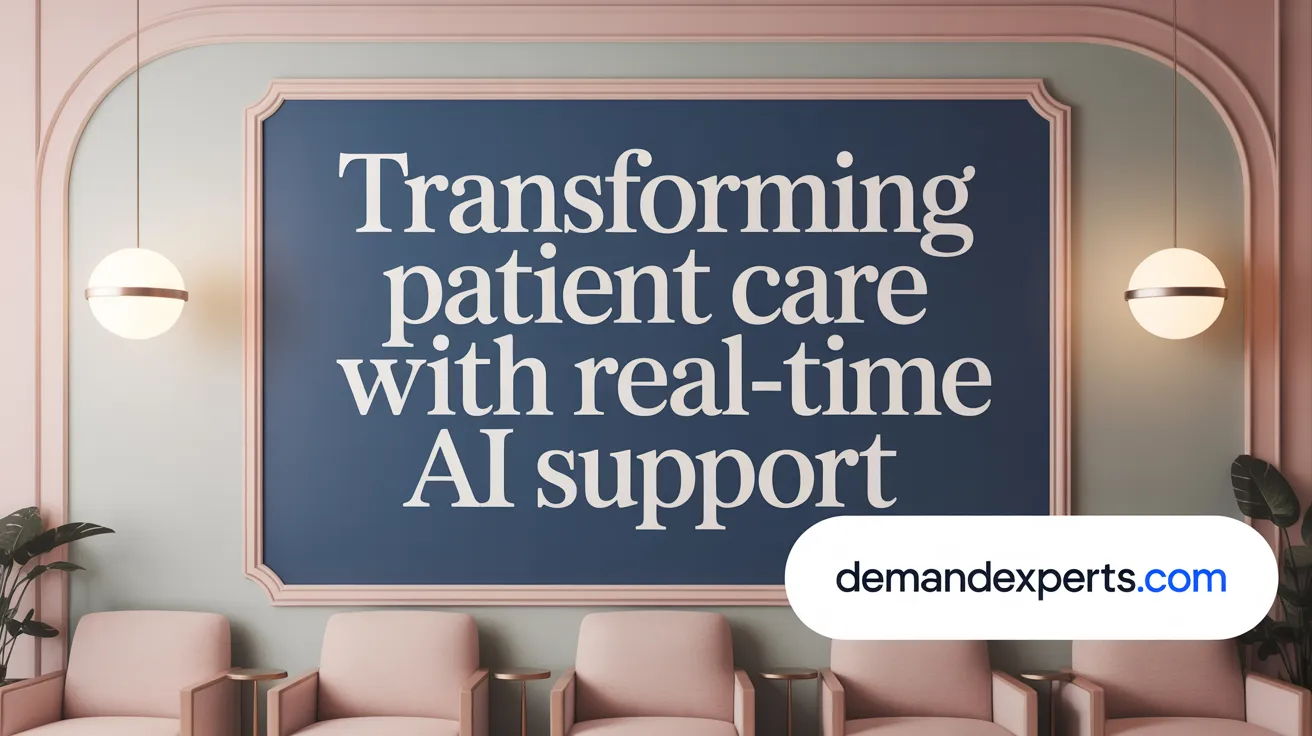
Appointment Scheduling and Management
AI chatbots play a vital role in automating appointment-related tasks. They allow patients to schedule, reschedule, or cancel appointments effortlessly through natural language interaction. Systems deployed by hospitals like Northwell Health and Boston Children's Hospital showcase how chatbots reduce wait times and administrative burdens, providing 24/7 availability for patients. For more details, see Appointment scheduling automation, Appointment scheduling chatbots, and Healthcare appointment scheduling bots.
Symptom Checking and Triage
Healthcare chatbots such as those from Babylon Health and NHS 111 Online offer symptom assessment and triage, helping patients evaluate their symptoms and guiding them toward the appropriate care pathway. This real-time support improves care routing and can reduce unnecessary clinic visits. Explore Symptom assessment chatbots, AI symptom checking and triage, and Virtual Symptom Assessment.
Medication Reminders and Chronic Disease Coaching
AI chatbots support medication management by sending reminders, tracking refills, and alerting patients of possible drug interactions. Solutions like Walgreens' medication reminder bot and disease management platforms like Sensely's Molly provide personalized coaching and symptom monitoring for chronic conditions, improving adherence and health outcomes. Relevant resources include Medication management chatbots, Medication reminders via chatbot, and Chronic disease management AI chatbots.
Mental Health Crisis Support and Education
Mental health-focused chatbots, including Woebot, Wysa, and Youper, use cognitive behavioral therapy (CBT) techniques and sentiment analysis to offer emotional support, stress management, and crisis intervention 24/7. These tools provide stigma-free, accessible mental health resources and educational content. For more, see Mental health support chatbots, AI in mental health diagnosis, and Cognitive behavioral therapy chatbots.
What are some real-world use cases of AI chatbots for patient support?
AI chatbots assist with appointment scheduling, symptom triage, medication management including reminders and refill tracking, chronic disease coaching, mental health support using CBT techniques, post-discharge follow-up, and patient education. Their integration with healthcare systems and 24/7 availability make them invaluable for continuous patient engagement and care delivery. Learn more about AI chatbot use cases in healthcare, Healthcare chatbot use cases, and Improving patient engagement with AI chatbots.
Enterprise-Grade AI Solutions and Their Healthcare Applications
What are examples of enterprise AI chatbot solutions in healthcare?
Several enterprise-grade AI chatbot solutions have been developed to address specific needs in healthcare settings, enhancing patient engagement and operational efficiency while ensuring compliance with healthcare regulations.
TeleVox SMART Agent offers HIPAA-compliant omnichannel virtual agents that manage patient interactions via phone, text, and online chat. Its SMART Agent facilitates self-service requests such as appointment scheduling, bill payments, and prescription refills, easing administrative workloads without complex IT setups.
Kore.ai provides a no-code AI chatbot platform specifically designed for healthcare organizations. This solution supports seamless voice and text interactions and integrates smoothly with existing healthcare systems, allowing healthcare providers to deploy powerful, custom chatbots quickly without needing extensive programming skills.
Specialized AI chatbots cater to particular healthcare functions:
Florence partners with WHO to deliver an AI-driven app focusing on medication reminders, symptom tracking, and evidence-based health advice in multiple languages.
Sensely's Molly is a virtual health assistant that employs voice, text, images, and video to verify symptoms, monitor chronic diseases, and provide personalized health information. It integrates smoothly with electronic health records to support care management.
Kyruus Health uses natural language processing and generative AI to connect patients with appropriate healthcare providers across large networks, streamlining the process of finding care based on preferences and insurance coverage.
Youper is tailored to mental health care, assisting over 3 million users in managing emotional well-being through adaptive, therapy-rooted conversations.
These enterprise AI chatbot solutions demonstrate the versatility and impact of AI in healthcare, from administrative automation to personalized patient support, all while maintaining the highest standards of security and integration needed in clinical environments.
Deployment Models: On-Premises Versus Cloud-Based Solutions
What are the deployment options for AI live chat solutions in healthcare?
Healthcare AI chatbots can be deployed using two primary models: on-premises and cloud-based solutions. On-premises deployment means the software and data reside on the organization's own servers, offering full control over data ownership and infrastructure. In contrast, cloud-based platforms host the chatbot services remotely, providing flexibility and ease of scaling. For detailed insights, see Live Chat and AI Chatbots on-premises and AI Chatbots in Healthcare.
Advantages of on-premises deployment
Deploying AI chatbots on-premises allows organizations to maintain complete ownership of sensitive healthcare data, which is vital for compliance with strict privacy regulations such as HIPAA. It also enables implementation of customized security measures, including proprietary encryption, network isolation, and zero-trust architectures. On-premises setups can deliver performance benefits through local resource allocation and reduced latency. Organizations also control timing of software upgrades to align with operational needs. For more on security controls and custom encryption in on-premises systems, refer to Data ownership and security in on-premises deployment.
Security, data control, and compliance considerations
On-premises deployment helps meet rigorous data privacy and security requirements by restricting data flow within the organization's environment. This model facilitates comprehensive monitoring, audit trails, and security protocols tailored to healthcare settings. Given the sensitivity of patient information, controlling encryption and access locally minimizes exposure to external threats and regulatory risks. See Data privacy in healthcare AI and Healthcare AI chatbot security for an in-depth review of compliance and data protection strategies.
Scalability and integration challenges
While on-premises deployments excel in security and control, they face challenges in scalability and integration. Expanding capacity requires upfront infrastructure investment and careful capacity planning to avoid overload. Integrating chatbots with multiple healthcare systems such as Electronic Health Records (EHRs), telemedicine platforms, and pharmacy systems demands technical expertise to maintain interoperability across diverse environments. Additional information on EHR integration with chatbots and Healthcare chatbot integration challenges can aid understanding.
Despite these challenges, on-premises deployment is favored in healthcare organizations that prioritize compliance, data sovereignty, and tailored security over the convenience of cloud scalability. For a comprehensive overview of AI deployment in healthcare settings, see Navigating AI Deployment in Healthcare: 6 Key Insights.
Addressing Privacy, Security, and Ethical Challenges
What privacy and ethical considerations arise in deploying AI chatbots?
AI chatbots in healthcare must strictly adhere to privacy standards such as HIPAA compliance for AI tools to safeguard sensitive patient data. Compliance involves the use of robust data encryption methods including end-to-end encryption and AES-256 encryption, comprehensive audit logs, and strict access controls to manage who can view or interact with patient information. These measures protect against unauthorized access and data breaches.
Despite these safeguards, challenges persist. AI chatbots have limitations in fully understanding complex medical cases, which can lead to risks of misdiagnosis if relied upon without human oversight and adequate clinical reasoning supervision. Ethical issues also arise around transparency; patients should be informed when interacting with AI and understand how their data is used.
Bias is another critical concern. Since AI models train on datasets that may not represent all populations equally, there is a risk of perpetuating healthcare disparities and algorithmic bias. Accountability mechanisms must be in place to address errors and biases, ensuring that AI supports clinicians without replacing their judgment, as emphasized in research on AI accountability in healthcare.
Implementing these ethical and security measures fosters trust and promotes safer, more equitable integration of AI chatbots into healthcare delivery. For further in-depth discussion on these topics, see resources on data privacy in health chatbots, ethical AI in healthcare, and security challenges of AI chatbots.
Enhancing Clinical Decision Support with AI Chatbots

Can AI chatbots assist in clinical decision-making?
AI chatbots have demonstrated promising capabilities in supporting clinical decision-making by offering diagnostic reasoning and evidence-based treatment suggestions. Advanced models like GPT-4 have shown a median accuracy of 77% in final diagnoses and 68% in clinical management, comparable to medical residents. These chatbots can analyze patient symptoms, suggest potential diagnoses, identify risks, and flag possible errors, aiding physicians in clinical workflows (Are AI chatbots ready to aid clinical decision-making?).
Physician acceptance and oversight
Physicians are increasingly utilizing AI chatbots as support tools rather than replacements. Surveys reveal that about 76% of physicians use AI language models for tasks such as drug interaction checks, diagnosis support, clinical documentation generation, and patient education. However, nearly all clinicians carefully vet AI outputs against trusted sources and peer consultations before application. This oversight ensures patient safety and maintains clinical standards while leveraging AI’s efficiencies (Are AI chatbots ready to aid clinical decision-making?.
Limitations and the role of AI as an augmentative tool
Despite advancements, AI chatbots face limitations in handling complex medical cases, missing critical patient details, and possible reasoning errors. They are not yet suitable for fast-paced hospital environments requiring immediate and fully reliable decisions. Challenges also include bias in training data, privacy concerns, and incomplete integration with healthcare workflows. Therefore, AI chatbots serve best as augmentative tools that enhance human judgment rather than replace it, facilitating quicker decisions without compromising accuracy (Are AI chatbots ready to aid clinical decision-making?; AI Chatbots in Healthcare).
The thoughtful integration of AI chatbots in clinical decision support promises improved efficiency and patient outcomes, provided human expertise remains central in care delivery (Healthcare AI Chatbots Overview.
Driving Operational Efficiency and Cost Savings
How do AI chatbots contribute to operational efficiency in healthcare?
AI chatbots significantly enhance operational efficiency by automating routine administrative tasks like appointment scheduling, insurance verification, and prescription refills. These capabilities reduce the workload on healthcare staff by managing a large volume of inquiries, enabling healthcare teams to focus on complex clinical duties. For details, see Conversational AI in healthcare.
For instance, platforms like Hyro's conversational AI deflect over 65% of incoming calls, resulting in a decrease in call center wait times and burnout. The implementation of AI chatbots has produced tangible operational improvements, such as a 99% reduction in average hold time and a 600% rise in targeted conversion rates for patient engagement. Learn more at Hyro AI healthcare chatbot automation.
Reduction in staff workload and call center automation
By automating daily interactions and front-office processes, AI chatbots offload up to 80% of repetitive queries, saving clinicians 2–3 hours per day. This automation directly alleviates staff burden, allowing better allocation of human resources and improved care delivery. The AI virtual assistant Clare, for example, handles 45% of patient interactions outside typical business hours, supporting continuous patient access without additional staffing. See How chatbots are enhancing patient care for more on Clare's capabilities.
Financial savings from automating routine tasks
Healthcare systems employing AI chatbots have achieved considerable cost savings. OSF HealthCare reported a $2.4 million cost reduction within the first year of deploying its virtual assistant Clare, driven by improved call handling efficiency and new revenue capture. Global projections estimate that automating routine healthcare tasks via AI chatbots could save the industry approximately USD 3.6 billion by 2025. For extensive insights, review Cost savings from healthcare chatbots.
Improved patient flow and decreased wait times
AI chatbots contribute to better patient flow by triaging patients based on urgency, ensuring critical cases receive immediate attention while reserving less urgent matters for lower-cost solutions. This prioritization reduces overall wait times and improves healthcare accessibility. Additionally, with 24/7 availability, chatbots provide immediate responses to patient inquiries, minimizing delays and fostering timely intervention. See AI chatbots boosting patient engagement and reducing clinician workload for evidence of improved patient access.
In summary, AI chatbots drive operational efficiency by automating routine work, decreasing staff workload, cutting costs, and enhancing patient flow, leading to measurable improvements across healthcare systems. Further reading is available at How AI chatbots advance healthcare for patients and providers.
Bridging Accessibility Gaps and Supporting Underserved Populations
How do AI chatbots improve healthcare access for underserved communities?
AI chatbots play a crucial role in enhancing healthcare accessibility for underserved populations by offering multilingual healthcare chatbots and culturally sensitive interactions. They provide real-time translation and adapt communication styles to respect diverse cultural contexts, helping patients understand medical information clearly. This cultural sensitivity eases communication barriers between patients and providers.
These technologies extend care to remote and rural areas where healthcare resources might be limited or distant. By enabling 24/7 access to symptom assessment and personalized health guidance remotely, chatbots reduce the need for travel, overcoming barriers such as distance and mobility constraints.
Moreover, AI chatbots assist in bridging disparities by providing reliable virtual health assistance, which is especially valuable for populations with limited healthcare access. They deliver education, medication reminders, and chronic disease management tools in simple language and various formats, including visuals and audio, enhancing health literacy and engagement across different demographics.
In essence, AI chatbots foster greater healthcare inclusivity by addressing language, cultural, geographic, and economic challenges, thus supporting equitable health outcomes for underserved communities. For further details on these benefits and how AI chatbots transform healthcare, see AI chatbots and healthcare inclusivity and Healthcare Chatbots Advancing Patient Care.
Future Trends: Towards Smarter, More Personalized AI Chatbots
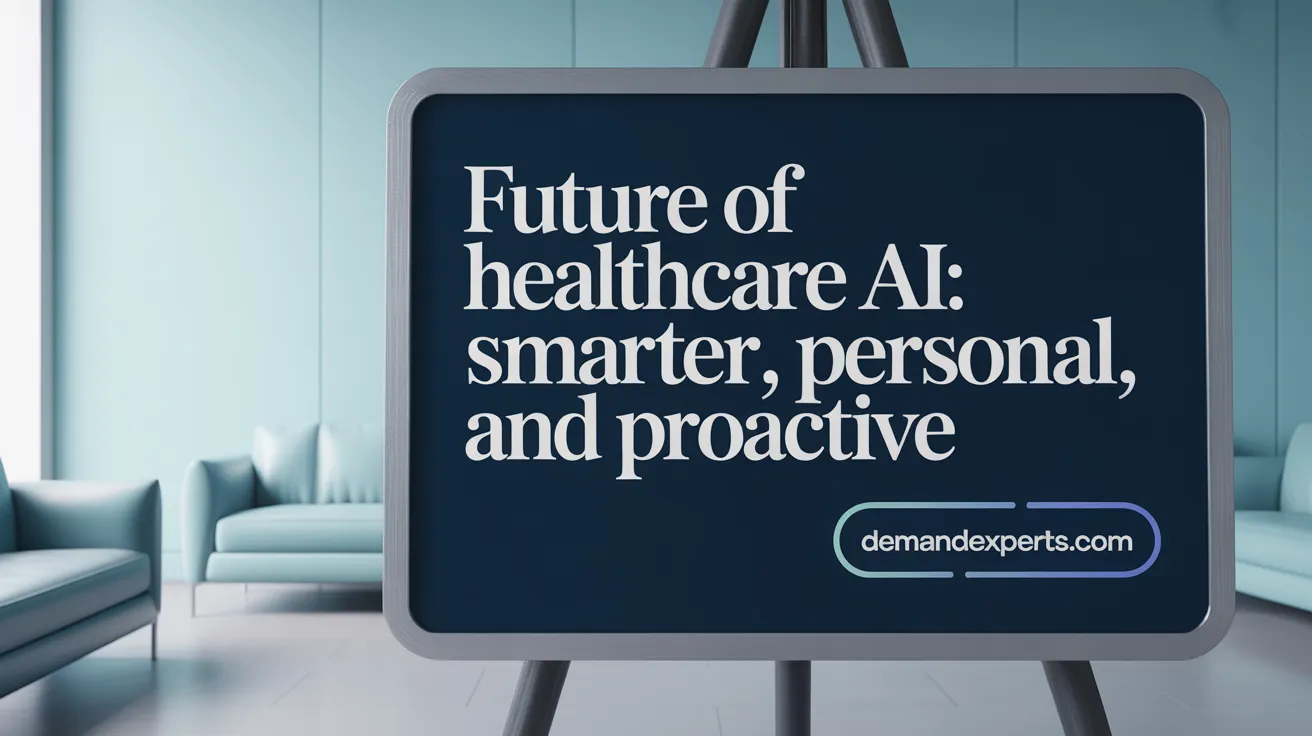
What are upcoming advancements and trends in AI chatbots for healthcare?
The future of AI chatbots in healthcare is set to be increasingly proactive and personalized. One significant advancement is the use of digital twins—virtual replicas of patients—that, combined with Internet of Things (IoT) devices such as wearable sensors, enable continuous, real-time health monitoring. This proactive health monitoring supports early detection of complications and personalized interventions before symptoms worsen.
Another exciting development is the emergence of emotionally intelligent AI and generative AI integration. Emotionally intelligent AI can detect and respond to patients' emotional states, improving empathy and tailoring interactions for enhanced patient experience. Generative AI technologies will contribute to more natural, dynamic conversations, making chatbot interactions deeper and more human-like.
At the same time, healthcare is witnessing ongoing regulatory evolution. Emerging guidelines focus on data privacy, transparency, fairness, and accuracy to ensure AI tools are safe and equitable. Alongside this, human-AI collaboration will be central—AI chatbots will augment clinicians rather than replace them, assisting with complex cases while deferring to human judgment when needed. This balance is critical for trust, safety, and ethical AI deployment in healthcare.
Together, these trends promise smarter, more adaptive, and patient-centered AI chatbots that not only respond to health events but actively contribute to improved outcomes through continuous monitoring and empathetic engagement.
Conclusion: Transforming Patient Support with AI Live Chat
Deploying AI live chat solutions in healthcare stands at the forefront of transforming patient support by combining technological sophistication with practical applications. These AI chatbots enhance accessibility, operational efficiency, and patient engagement while addressing challenges around privacy, accuracy, and equity. As integration with healthcare systems deepens and AI capabilities advance, live chat solutions will increasingly serve as essential allies in delivering personalized, timely, and scalable care. The ongoing evolution promises smarter, empathetic AI that complements clinical expertise, ultimately elevating healthcare delivery and patient outcomes worldwide.
Introduction to AI Live Chat in Healthcare
Artificial intelligence live chat solutions are transforming patient support by offering real-time, accessible assistance. These AI chatbots integrate sophisticated technologies like natural language processing and machine learning to simulate human conversation, significantly improving patient engagement and operational efficiency. This article explores the deployment of AI live chat in healthcare, outlining their benefits, technologies, challenges, and real-world applications that shape the future of patient care.
The Growing Impact of AI Chatbots in Healthcare

What is the current and projected market size for healthcare chatbots?
The healthcare chatbot market is rapidly expanding. It is projected to reach approximately USD 1.49 billion by 2025 and surge to USD 10.26 billion by 2034. This growth is driven by an impressive compound annual growth rate (CAGR) of 23.92%, reflecting broad adoption and technological advancements within the healthcare industry.
How do AI chatbots benefit healthcare providers and patients?
AI chatbots bring several advantages to healthcare systems and their patients. They significantly improve patient engagement by offering personalized and timely interactions. Chatbots reduce administrative burdens on healthcare staff by automating routine tasks, such as appointment management and providing answers to common queries. Their 24/7 availability ensures continuous support, improving access to healthcare services at any time. Overall, AI chatbots enhance operational efficiency, helping healthcare organizations save an estimated USD 3.6 billion globally by 2025.
What are the primary use cases for AI chatbots in healthcare?
AI chatbots serve a variety of essential functions in healthcare settings:
- Appointment Scheduling: Automating booking, rescheduling, and cancellations (Appointment scheduling chatbots)
- Patient Triage and Symptom Checking: Offering preliminary assessment and guidance (Patient triage AI chatbots
- Medication Management: Sending reminders and tracking adherence (Medication management tools)
- Mental Health Support: Providing conversational therapy and emotional assistance (Mental health support chatbots)
- Chronic Disease Management: Monitoring symptoms and coaching patients remotely (Chronic disease management AI
These versatile applications make AI chatbots integral to modern healthcare, improving service delivery and patient outcomes.
Together, the expanding market, clear benefits, and diverse use cases highlight the growing impact of AI chatbots in revolutionizing healthcare delivery globally.
Core Technologies Enabling AI Live Chat Solutions

What technologies underpin AI chatbots in healthcare?
AI chatbots in healthcare are built on a foundation of advanced technologies that enable human-like interactions and efficient service delivery. The cornerstone is Natural Language Processing (NLP), which includes:
- Natural Language Understanding (NLU): interpreting patient intent and recognizing relevant entities in conversations.
- Natural Language Generation (NLG): crafting clear, human-like responses.
Together with NLP, Machine Learning (ML) plays a vital role by continually improving chatbot performance through supervised, unsupervised, and reinforcement learning techniques.
What role do speech recognition and sentiment analysis play?
Speech recognition technology allows chatbots to convert spoken language into text, crucial for voice-based patient interactions. This requires specialized training on medical terminology and noise cancellation to function effectively in clinical environments.
Sentiment analysis assesses the emotional tone of the patient's inputs. This helps chatbots adjust their responses empathetically, enhancing patient engagement and communication quality.
How does contextual awareness and system integration improve AI chatbots?
Contextual awareness enables AI chatbots to remember past interactions and adapt responses accordingly, creating more personalized and relevant conversations.
Integration with healthcare systems such as Electronic Health Records (EHRs), telemedicine platforms, pharmacy systems, and wearable devices broadens chatbot functionality. Through Application Programming Interfaces (APIs) and cloud computing, chatbots access patient data securely and support seamless workflows, such as appointment scheduling, medication management, clinical decision support, and remote monitoring.
Together, these technologies empower AI chatbots to provide 24/7 assistance, improve patient outcomes, and reduce administrative burdens in healthcare settings.
Integration with Healthcare Systems for Enhanced Care Delivery
How do AI chatbots integrate with existing healthcare infrastructure?
AI chatbots connect seamlessly with multiple healthcare systems to deliver smarter, personalized care. They integrate with Electronic Health Records (EHRs) and chatbots, telemedicine chatbot platforms, pharmacy and billing systems, wearable medical devices, and clinical decision support systems through application programming interfaces (APIs) as described in AI chatbots for healthcare.
Integration with Electronic Health Records (EHRs)
By linking to EHR integration with chatbots, chatbots gain access to a patient's comprehensive medical history including medications, allergies, and past visits. This enables chatbots to provide more accurate responses and tailored advice, and to automate actions like booking appointments or sending prescription refill requests, supporting AI clinical decision support.
Connection to telemedicine platforms, pharmacy, billing, and wearable devices
Integration with telemedicine chatbot platforms enables chatbots to support virtual consultations by preparing patients and managing follow-up care. Pharmacy system connections facilitate medication management tasks such as reminders and refill alerts, as detailed in medication management chatbots and pharmacy system chatbots. Billing system integration lets chatbots answer insurance and payment queries efficiently following the trends discussed in insurance and claims chatbots. Wearable devices allow real-time health data monitoring, enhancing chronic disease management through symptom tracking and timely interventions, referenced in wearable device integration.
Benefits of system interoperability
The interoperability of chatbots with healthcare systems streamlines patient workflows, relieves administrative burdens, and enriches clinical decision-making processes. This connectivity supports 24/7 patient engagement, reduces wait times, enhances data collection for improved outcomes as highlighted in real-time data collection by chatbots, and leads to significant operational cost savings (cost savings from healthcare chatbots.
By embedding AI chatbots within existing healthcare infrastructures, providers deliver more responsive, efficient, and personalized care, supporting operational efficiency with AI chatbots.
Improving Patient Engagement Through 24/7 Real-Time Support
How do AI live chat solutions enhance patient engagement?
AI chatbots revolutionize patient engagement by offering continuous, around-the-clock support. Their 24/7 healthcare information access allows patients to access health information and assistance at any time, drastically reducing wait times and ensuring immediate responses to queries. This uninterrupted access empowers patients to manage their health proactively without delays.
Continuous availability and reduced wait times
Unlike traditional healthcare channels bound by office hours, AI chatbots operate nonstop. This nonstop engagement significantly cuts down frustration linked to long hold times or difficult appointment scheduling. Hospitals and healthcare systems report up to a 40% increase in operational efficiency thanks to such real-time patient interaction, supported by TeleVox omnichannel patient relationship management and Nuance Patient Engagement Solutions.
Personalized and empathetic patient interactions
Advanced AI technologies, including Natural Language Processing, sentiment analysis, and machine learning, enable chatbots to understand patients' emotional states and tailor their responses accordingly. By simulating human-like empathy and conversational nuances, these chatbots enhance the patient experience, making interactions feel supportive and individualized, as highlighted in conversational AI for healthcare.
Support for diverse patient needs including mental health and chronic disease management
AI chatbots cater effectively to varied patient groups. Mental health bots provide therapeutic techniques and confidential support, encouraging continued engagement without stigma, as demonstrated by Youper mental health chatbot and Woebot cognitive behavioral therapy. For chronic disease management, chatbots offer daily symptom monitoring, medication reminders, and health coaching, improving adherence and outcomes, detailed in Sensely chronic condition chatbot and Healthily’s Dot chatbot. This broad scope helps patients navigate complex healthcare needs with reliable assistance.
The integration of AI chatbots into healthcare settings not only streamlines administrative tasks but also fosters improved communication and trust, ultimately advancing patient satisfaction and health outcomes, supported by insights from AI chatbots improving healthcare efficiency and Healthcare chatbots market growth.
Use Cases Demonstrating Real-Time Patient Support

Appointment Scheduling and Management
AI chatbots play a vital role in automating appointment-related tasks. They allow patients to schedule, reschedule, or cancel appointments effortlessly through natural language interaction. Systems deployed by hospitals like Northwell Health and Boston Children's Hospital showcase how chatbots reduce wait times and administrative burdens, providing 24/7 availability for patients. For more details, see Appointment scheduling automation, Appointment scheduling chatbots, and Healthcare appointment scheduling bots.
Symptom Checking and Triage
Healthcare chatbots such as those from Babylon Health and NHS 111 Online offer symptom assessment and triage, helping patients evaluate their symptoms and guiding them toward the appropriate care pathway. This real-time support improves care routing and can reduce unnecessary clinic visits. Explore Symptom assessment chatbots, AI symptom checking and triage, and Virtual Symptom Assessment.
Medication Reminders and Chronic Disease Coaching
AI chatbots support medication management by sending reminders, tracking refills, and alerting patients of possible drug interactions. Solutions like Walgreens' medication reminder bot and disease management platforms like Sensely's Molly provide personalized coaching and symptom monitoring for chronic conditions, improving adherence and health outcomes. Relevant resources include Medication management chatbots, Medication reminders via chatbot, and Chronic disease management AI chatbots.
Mental Health Crisis Support and Education
Mental health-focused chatbots, including Woebot, Wysa, and Youper, use cognitive behavioral therapy (CBT) techniques and sentiment analysis to offer emotional support, stress management, and crisis intervention 24/7. These tools provide stigma-free, accessible mental health resources and educational content. For more, see Mental health support chatbots, AI in mental health diagnosis, and Cognitive behavioral therapy chatbots.
What are some real-world use cases of AI chatbots for patient support?
AI chatbots assist with appointment scheduling, symptom triage, medication management including reminders and refill tracking, chronic disease coaching, mental health support using CBT techniques, post-discharge follow-up, and patient education. Their integration with healthcare systems and 24/7 availability make them invaluable for continuous patient engagement and care delivery. Learn more about AI chatbot use cases in healthcare, Healthcare chatbot use cases, and Improving patient engagement with AI chatbots.
Enterprise-Grade AI Solutions and Their Healthcare Applications
What are examples of enterprise AI chatbot solutions in healthcare?
Several enterprise-grade AI chatbot solutions have been developed to address specific needs in healthcare settings, enhancing patient engagement and operational efficiency while ensuring compliance with healthcare regulations.
TeleVox SMART Agent offers HIPAA-compliant omnichannel virtual agents that manage patient interactions via phone, text, and online chat. Its SMART Agent facilitates self-service requests such as appointment scheduling, bill payments, and prescription refills, easing administrative workloads without complex IT setups.
Kore.ai provides a no-code AI chatbot platform specifically designed for healthcare organizations. This solution supports seamless voice and text interactions and integrates smoothly with existing healthcare systems, allowing healthcare providers to deploy powerful, custom chatbots quickly without needing extensive programming skills.
Specialized AI chatbots cater to particular healthcare functions:
Florence partners with WHO to deliver an AI-driven app focusing on medication reminders, symptom tracking, and evidence-based health advice in multiple languages.
Sensely's Molly is a virtual health assistant that employs voice, text, images, and video to verify symptoms, monitor chronic diseases, and provide personalized health information. It integrates smoothly with electronic health records to support care management.
Kyruus Health uses natural language processing and generative AI to connect patients with appropriate healthcare providers across large networks, streamlining the process of finding care based on preferences and insurance coverage.
Youper is tailored to mental health care, assisting over 3 million users in managing emotional well-being through adaptive, therapy-rooted conversations.
These enterprise AI chatbot solutions demonstrate the versatility and impact of AI in healthcare, from administrative automation to personalized patient support, all while maintaining the highest standards of security and integration needed in clinical environments.
Deployment Models: On-Premises Versus Cloud-Based Solutions
What are the deployment options for AI live chat solutions in healthcare?
Healthcare AI chatbots can be deployed using two primary models: on-premises and cloud-based solutions. On-premises deployment means the software and data reside on the organization's own servers, offering full control over data ownership and infrastructure. In contrast, cloud-based platforms host the chatbot services remotely, providing flexibility and ease of scaling. For detailed insights, see Live Chat and AI Chatbots on-premises and AI Chatbots in Healthcare.
Advantages of on-premises deployment
Deploying AI chatbots on-premises allows organizations to maintain complete ownership of sensitive healthcare data, which is vital for compliance with strict privacy regulations such as HIPAA. It also enables implementation of customized security measures, including proprietary encryption, network isolation, and zero-trust architectures. On-premises setups can deliver performance benefits through local resource allocation and reduced latency. Organizations also control timing of software upgrades to align with operational needs. For more on security controls and custom encryption in on-premises systems, refer to Data ownership and security in on-premises deployment.
Security, data control, and compliance considerations
On-premises deployment helps meet rigorous data privacy and security requirements by restricting data flow within the organization's environment. This model facilitates comprehensive monitoring, audit trails, and security protocols tailored to healthcare settings. Given the sensitivity of patient information, controlling encryption and access locally minimizes exposure to external threats and regulatory risks. See Data privacy in healthcare AI and Healthcare AI chatbot security for an in-depth review of compliance and data protection strategies.
Scalability and integration challenges
While on-premises deployments excel in security and control, they face challenges in scalability and integration. Expanding capacity requires upfront infrastructure investment and careful capacity planning to avoid overload. Integrating chatbots with multiple healthcare systems such as Electronic Health Records (EHRs), telemedicine platforms, and pharmacy systems demands technical expertise to maintain interoperability across diverse environments. Additional information on EHR integration with chatbots and Healthcare chatbot integration challenges can aid understanding.
Despite these challenges, on-premises deployment is favored in healthcare organizations that prioritize compliance, data sovereignty, and tailored security over the convenience of cloud scalability. For a comprehensive overview of AI deployment in healthcare settings, see Navigating AI Deployment in Healthcare: 6 Key Insights.
Addressing Privacy, Security, and Ethical Challenges
What privacy and ethical considerations arise in deploying AI chatbots?
AI chatbots in healthcare must strictly adhere to privacy standards such as HIPAA compliance for AI tools to safeguard sensitive patient data. Compliance involves the use of robust data encryption methods including end-to-end encryption and AES-256 encryption, comprehensive audit logs, and strict access controls to manage who can view or interact with patient information. These measures protect against unauthorized access and data breaches.
Despite these safeguards, challenges persist. AI chatbots have limitations in fully understanding complex medical cases, which can lead to risks of misdiagnosis if relied upon without human oversight and adequate clinical reasoning supervision. Ethical issues also arise around transparency; patients should be informed when interacting with AI and understand how their data is used.
Bias is another critical concern. Since AI models train on datasets that may not represent all populations equally, there is a risk of perpetuating healthcare disparities and algorithmic bias. Accountability mechanisms must be in place to address errors and biases, ensuring that AI supports clinicians without replacing their judgment, as emphasized in research on AI accountability in healthcare.
Implementing these ethical and security measures fosters trust and promotes safer, more equitable integration of AI chatbots into healthcare delivery. For further in-depth discussion on these topics, see resources on data privacy in health chatbots, ethical AI in healthcare, and security challenges of AI chatbots.
Enhancing Clinical Decision Support with AI Chatbots

Can AI chatbots assist in clinical decision-making?
AI chatbots have demonstrated promising capabilities in supporting clinical decision-making by offering diagnostic reasoning and evidence-based treatment suggestions. Advanced models like GPT-4 have shown a median accuracy of 77% in final diagnoses and 68% in clinical management, comparable to medical residents. These chatbots can analyze patient symptoms, suggest potential diagnoses, identify risks, and flag possible errors, aiding physicians in clinical workflows (Are AI chatbots ready to aid clinical decision-making?).
Physician acceptance and oversight
Physicians are increasingly utilizing AI chatbots as support tools rather than replacements. Surveys reveal that about 76% of physicians use AI language models for tasks such as drug interaction checks, diagnosis support, clinical documentation generation, and patient education. However, nearly all clinicians carefully vet AI outputs against trusted sources and peer consultations before application. This oversight ensures patient safety and maintains clinical standards while leveraging AI’s efficiencies (Are AI chatbots ready to aid clinical decision-making?.
Limitations and the role of AI as an augmentative tool
Despite advancements, AI chatbots face limitations in handling complex medical cases, missing critical patient details, and possible reasoning errors. They are not yet suitable for fast-paced hospital environments requiring immediate and fully reliable decisions. Challenges also include bias in training data, privacy concerns, and incomplete integration with healthcare workflows. Therefore, AI chatbots serve best as augmentative tools that enhance human judgment rather than replace it, facilitating quicker decisions without compromising accuracy (Are AI chatbots ready to aid clinical decision-making?; AI Chatbots in Healthcare).
The thoughtful integration of AI chatbots in clinical decision support promises improved efficiency and patient outcomes, provided human expertise remains central in care delivery (Healthcare AI Chatbots Overview.
Driving Operational Efficiency and Cost Savings
How do AI chatbots contribute to operational efficiency in healthcare?
AI chatbots significantly enhance operational efficiency by automating routine administrative tasks like appointment scheduling, insurance verification, and prescription refills. These capabilities reduce the workload on healthcare staff by managing a large volume of inquiries, enabling healthcare teams to focus on complex clinical duties. For details, see Conversational AI in healthcare.
For instance, platforms like Hyro's conversational AI deflect over 65% of incoming calls, resulting in a decrease in call center wait times and burnout. The implementation of AI chatbots has produced tangible operational improvements, such as a 99% reduction in average hold time and a 600% rise in targeted conversion rates for patient engagement. Learn more at Hyro AI healthcare chatbot automation.
Reduction in staff workload and call center automation
By automating daily interactions and front-office processes, AI chatbots offload up to 80% of repetitive queries, saving clinicians 2–3 hours per day. This automation directly alleviates staff burden, allowing better allocation of human resources and improved care delivery. The AI virtual assistant Clare, for example, handles 45% of patient interactions outside typical business hours, supporting continuous patient access without additional staffing. See How chatbots are enhancing patient care for more on Clare's capabilities.
Financial savings from automating routine tasks
Healthcare systems employing AI chatbots have achieved considerable cost savings. OSF HealthCare reported a $2.4 million cost reduction within the first year of deploying its virtual assistant Clare, driven by improved call handling efficiency and new revenue capture. Global projections estimate that automating routine healthcare tasks via AI chatbots could save the industry approximately USD 3.6 billion by 2025. For extensive insights, review Cost savings from healthcare chatbots.
Improved patient flow and decreased wait times
AI chatbots contribute to better patient flow by triaging patients based on urgency, ensuring critical cases receive immediate attention while reserving less urgent matters for lower-cost solutions. This prioritization reduces overall wait times and improves healthcare accessibility. Additionally, with 24/7 availability, chatbots provide immediate responses to patient inquiries, minimizing delays and fostering timely intervention. See AI chatbots boosting patient engagement and reducing clinician workload for evidence of improved patient access.
In summary, AI chatbots drive operational efficiency by automating routine work, decreasing staff workload, cutting costs, and enhancing patient flow, leading to measurable improvements across healthcare systems. Further reading is available at How AI chatbots advance healthcare for patients and providers.
Bridging Accessibility Gaps and Supporting Underserved Populations
How do AI chatbots improve healthcare access for underserved communities?
AI chatbots play a crucial role in enhancing healthcare accessibility for underserved populations by offering multilingual healthcare chatbots and culturally sensitive interactions. They provide real-time translation and adapt communication styles to respect diverse cultural contexts, helping patients understand medical information clearly. This cultural sensitivity eases communication barriers between patients and providers.
These technologies extend care to remote and rural areas where healthcare resources might be limited or distant. By enabling 24/7 access to symptom assessment and personalized health guidance remotely, chatbots reduce the need for travel, overcoming barriers such as distance and mobility constraints.
Moreover, AI chatbots assist in bridging disparities by providing reliable virtual health assistance, which is especially valuable for populations with limited healthcare access. They deliver education, medication reminders, and chronic disease management tools in simple language and various formats, including visuals and audio, enhancing health literacy and engagement across different demographics.
In essence, AI chatbots foster greater healthcare inclusivity by addressing language, cultural, geographic, and economic challenges, thus supporting equitable health outcomes for underserved communities. For further details on these benefits and how AI chatbots transform healthcare, see AI chatbots and healthcare inclusivity and Healthcare Chatbots Advancing Patient Care.
Future Trends: Towards Smarter, More Personalized AI Chatbots

What are upcoming advancements and trends in AI chatbots for healthcare?
The future of AI chatbots in healthcare is set to be increasingly proactive and personalized. One significant advancement is the use of digital twins—virtual replicas of patients—that, combined with Internet of Things (IoT) devices such as wearable sensors, enable continuous, real-time health monitoring. This proactive health monitoring supports early detection of complications and personalized interventions before symptoms worsen.
Another exciting development is the emergence of emotionally intelligent AI and generative AI integration. Emotionally intelligent AI can detect and respond to patients' emotional states, improving empathy and tailoring interactions for enhanced patient experience. Generative AI technologies will contribute to more natural, dynamic conversations, making chatbot interactions deeper and more human-like.
At the same time, healthcare is witnessing ongoing regulatory evolution. Emerging guidelines focus on data privacy, transparency, fairness, and accuracy to ensure AI tools are safe and equitable. Alongside this, human-AI collaboration will be central—AI chatbots will augment clinicians rather than replace them, assisting with complex cases while deferring to human judgment when needed. This balance is critical for trust, safety, and ethical AI deployment in healthcare.
Together, these trends promise smarter, more adaptive, and patient-centered AI chatbots that not only respond to health events but actively contribute to improved outcomes through continuous monitoring and empathetic engagement.
Conclusion: Transforming Patient Support with AI Live Chat
Deploying AI live chat solutions in healthcare stands at the forefront of transforming patient support by combining technological sophistication with practical applications. These AI chatbots enhance accessibility, operational efficiency, and patient engagement while addressing challenges around privacy, accuracy, and equity. As integration with healthcare systems deepens and AI capabilities advance, live chat solutions will increasingly serve as essential allies in delivering personalized, timely, and scalable care. The ongoing evolution promises smarter, empathetic AI that complements clinical expertise, ultimately elevating healthcare delivery and patient outcomes worldwide.


